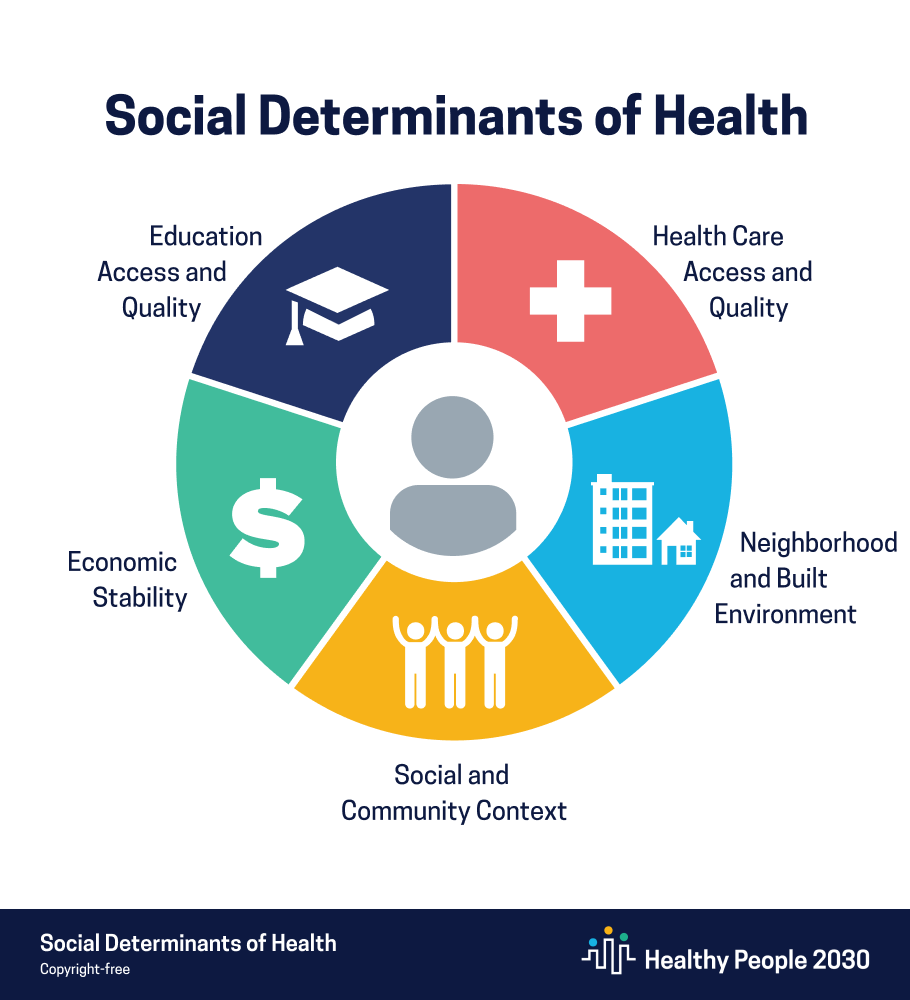The ongoing COVID-19 pandemic has sharpened focus on health inequity in the United States and laid bare the multitude of factors that contribute to health disparities. While much of the recent political focus has been on increasing access to affordable health care, the U.S. Department of Health and Human Services’ Healthy People 2030 initiative offers a useful framework for understanding and addressing poor health outcomes that implicates the city manager as much as the physician: to increase overall well-being and improve health outcomes, success starts with the communities in which people live and not healthcare workers.
Approved in 2018, the Healthy People 2030 initiative is the fifth iteration of Healthy People, originally introduced in 1979, when Surgeon General Julius Richmond released “Healthy People: The Surgeon General’s Report on Health Promotion and Disease Prevention.” While the original report focused on reducing preventable death and injury, the scope of the program has expanded over time as the nation has sought to better understand and address persistent health inequities. Healthy People 2030 strengthens focus on the social determinants of health (SDOH) or “…conditions in the environments where people are born, live, learn, work, play, worship, and age that affect a wide range of health, functioning, and quality-of-life outcomes and risks.” These lived experiences are grouped into five domains:

Healthy People 2030, U.S. Department of Health and Human Services, Office of Disease Prevention and Health Promotion. Retrieved [date graphic was accessed], from https://health.gov/healthypeople/objectives-and-data/social-determinants-health
While there is significant breadth to each of the domains, Healthy People 2030 seeks to draw distinct lines between the environments in which people live and their health outcomes. For example, if people who have easy access to grocery stores are more likely to have better nutrition, what can we assume, and learn, about people who face obstacles in accessing grocery stores? What does this mean for their nutrition? How does this lack of access elevate their risk for health conditions such as heart disease, obesity, and diabetes? How do historically inequitable practices, such as redlining, exacerbate these inequities? Healthy People 2030 acknowledges that while desirable, increased access to affordable healthcare alone will not eliminate health and wellness disparities. Instead, the U.S. DHHS is asking state and local governments and public health organizations, and their partners in education, transportation, and housing to take action to improve the conditions in which people live.
Each year, in recognition of individuals who develop innovative approaches to addressing social determinants of health in their community, the National Civic League partners with the Robert Wood Johnson Foundation to offer the RWJF-NCL Health Equity Award. Nominations for the 2022 RWJF-NCL Health Equity Award opened on February 14th and will close at 11:59 PM on April 15th. The National Civic League looks forward to celebrating the success of the winner, and many other individuals, at the All-America City Awards event July 18-22, 2022.



